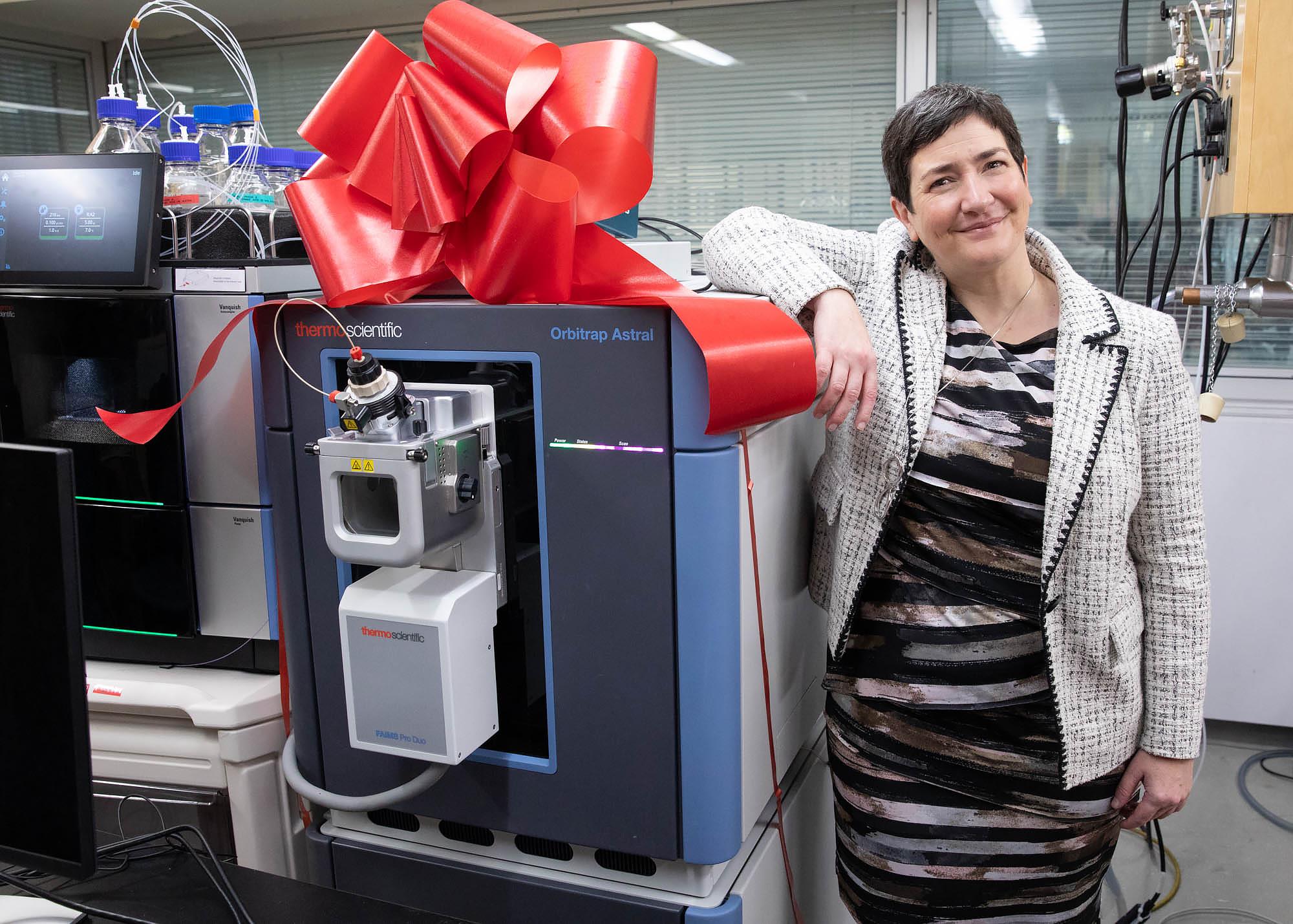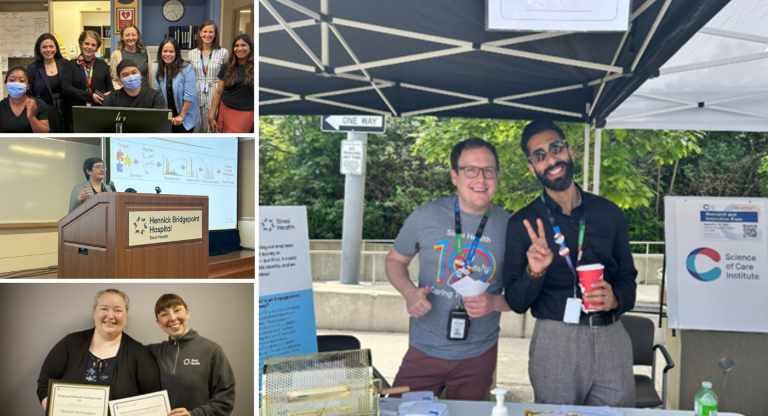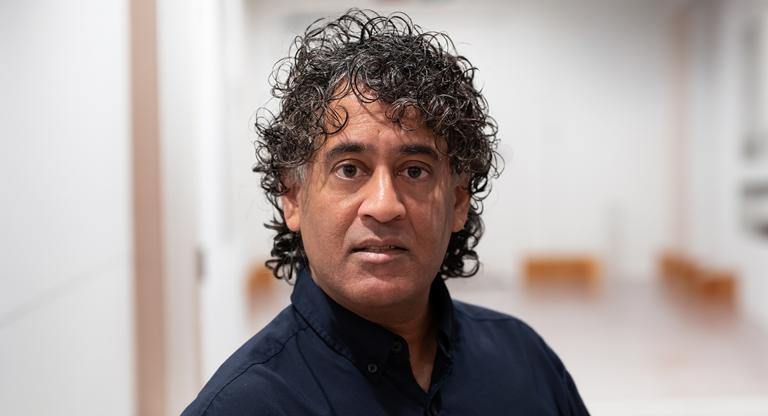Festivities start early for proteomics researchers at Sinai Health with Canada’s first Astral mass-spectrometer

Celebrations started early for the proteomics team at the Lunenfeld-Tanenbaum Research Institute, part of Sinai Health, as they unwrapped Canada’s first top-of-the-line mass spectrometer – the Orbitrap Astral (the Astral).
The Astral will enable unprecedented new views into the proteome, which is a complete set of protein molecules in cells that holds clues to health and disease.
Much like a child unwrapping a long-desired toy, scientists are gleefully tearing into the possibilities presented by this cutting-edge instrument. And much like children, they are impatient.
“I want to get as much data as fast as possible, and this is the only instrument that will let me do that”, said Dr. Brendon Seale, Proteomics Scientific Manager at the LTRI’s Network Biology Collaborative Centre, where the Astral is housed.
Innovative technologies like the Astral don’t just speed up research. They also change the kinds of questions scientists can ask.
“It allows us to see as deep and as dark down the abyss of the proteome as possible in search of solutions to biological problems,” said Seale.
And the problems are many. Scientists are still grappling with understanding which proteins are present in different cell types and how their interactions change in disease states. Given that proteins are the products of genes and differ across cell types and conditions, deciphering this complex protein map is crucial for our understanding of health and disease.
Mass spectrometry, despite being the gold standard for identifying proteins through their unique mass and charge ratios, has been hindered by low throughput. The Astral, known for its exceptional precision and speed, stands at the pinnacle of this technology.
With its reported ability to identify 12,000 different proteins – two-thirds of the human proteome – within a single hour and measure their abundance, the instrument is poised to shed light on how proteomes differ between cell types and disease states. Moreover, it also allows the exploration of trace amounts of proteins as well as the proteomes of individual cells or rare cell populations, which was previously challenging due to the limited availability of sample material.
Seale's enthusiasm is palpable when it comes to demystifying blood plasma proteins — how their numbers fluctuate over time in the face of disease or in response to treatment. The overall protein content of this most common clinical sample has remained elusive in large part due to older instruments' inability to spot low-abundance proteins.
For the LTRI, the implications are profound. The Astral will enable the institute's scientists to undertake large-scale studies of protein expression, modifications, and interactions. These studies are critical for unravelling the mysteries of diseases such as cancer, diabetes, and neurodegenerative disorders.
It also opens doors to new possibilities for collaboration, especially with clinician-scientists within Sinai Health and from other hospitals. The Astral's capability to conduct detailed proteomic profiling of patient samples will enable biomarker discovery for different diseases and create proteomics datasets that could eventually be leveraged for personalized diagnostics.
The arrival of the Astral is good news for researchers beyond Sinai Health. The NBCC has been providing proteomics services to researchers from across Toronto and Ontario and as far as Australia. Since its founding in 2014, the NBCC has contributed equipment and expertise to more than 330 published studies, while maintaining its status as a world-class research centre with cutting-edge tools. Once the Astral was released last summer, an order was placed, thanks to funding from the Canada Foundation for Innovation and the Government of Ontario.
“I am thrilled that we were able to bring the first Astral mass-spectrometer to Canadian researchers,” said Dr. Anne-Claude Gingras, Director of the LTRI and Vice-president of Research at Sinai Health, who also co-directs the NBCC. “As a researcher, I am really excited to see what we can do with it, but I am also enthusiastic about new opportunities for collaboration it opens with our colleagues across the country.”
To introduce the instrument to the wider research community, the LTRI is hosting a half-day symposium next month that will feature global leaders in mass-spectrometry. The speakers include Dr. Alexander Makarov, who led the team that developed the Astral at Thermo Fisher Scientific, Drs. Jesper Olsen, University of Copenhagen, and Michael MacCoss, University of Washington, who are experts in quantitative proteomics. Those wishing to attend the symposium can register here.
As the year draws to a close, let the countdown begin to a new age of discovery in proteomics at Sinai Health and beyond!












